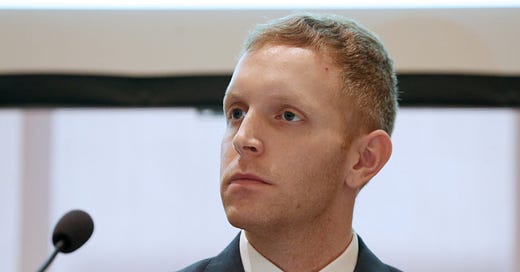Over the past few weeks I’ve continued my reporting on the Alex Morse scandal—and my long standing belief that the Holyoke mayor was targeted to send a message has not changed.
On January 13, UMass Amherst released its report on the controversy, finding that Morse had not violated school rules.
From my article at The Intercept with Ryan Grim:
In early August, just a few weeks prior to the election against Neal, chair of the powerful House Ways and Means Committee, a number of college students made vague accusations of impropriety against Morse, the youngest and first openly gay mayor of Holyoke.
The involvement of state party officials, who coordinated with the Massachusetts College Democrats to accuse Morse of sexual impropriety, was first revealed by The Intercept and later confirmed by an internal review by the Massachusetts Democratic Party.
[…]
The UMass report, issued on January 13 by the law firm [Saul Ewing Arnstein & Lehr], found not only no evidence of wrongdoing by Morse, but also that he was not accused of anything that would have violated the school policy. Still, the report left open a vague possibility that the mayor had violated “the University’s general expectations for the conduct of its employees.”
Despite those findings, the report dug into Morse’s private life and made insinuations about his behavior.
Anger over the mishandling—at best—of the scandal prompted Cambridge Democratic City Committee member Dan Totten to launch an ultimately unsuccessful attempt to condemn the state party leadership.
That challenge to party leadership earned Totten a homophobic slur from fellow member George Goverman, as Ryan and I reported:
During a routine vote as the process stretched into its third hour, Goverman blurted out the slur after Totten voted. The slur was the subject of fallout later in the meeting, as members called for Goverman to resign from the city party.
Totten wrote about his experience in the local newspaper Cambridge Day and told The Intercept that he was in fact more bothered by the subtle homophobia on display in the meeting before the slur was uttered.
“At this point in the meeting, I knew we were going to lose the vote by five or six votes,” Totten said. “If this homophobic slur had come in a different context, I’d have been much more taken aback. But here I was like, you know, that’s kind of the natural extension of the argument that was just made.”
Party chair Gus Bickford did eventually apologize—though vaguely, and not to Morse—in a meeting of the Democratic State Committee.
Bickford, along with party Executive Director Veronica Martinez and attorney Jim Roosevelt, helped to perpetuate a smear campaign against Morse during the Holyoke mayor’s primary challenge to Rep. Richard Neal in the summer of 2020. Morse was accused of vague misconduct by members of the UMass Democrats in a letter that was leaked to the press; The Intercept’s subsequent reporting revealed that members of the state party leadership were intimately involved in preparing the accusations for delivery to Morse despite there being no actual underlying allegations to put forward.
Morse told The Intercept that Bickford has yet to contact him.
“Gus has my email address and cell number if he has anything to say,” said Morse.
I’ve talked to a number of Democrats in Massachusetts and their disappointment with the party is palpable. A state party that doesn’t listen to its younger members could be doomed. But the institutional reaction to the scandal makes clear that unsolicited challenges to the status quo must be destroyed. It’s the top priority.
Frankly, they’re probably right. Though young members I’ve spoken to say they’re frustrated, they still believe they can, eventually, take over the state party and turn it to good. That will require staying in the party and lending the credibility that their numbers deliver.
The state party absorbed some blows from the scandal but has come out of it in one piece. It remains to be seen if progressives can mount an effective internal challenge to its power.
It’s difficult to see that happening. What’s more likely is that residual anger boils along for another year before the pressure to come together to lose another gubernatorial race supersedes the unfinished business of the past. The architects of the scheme will avoid consequences.
It’s the Massachusetts way.




